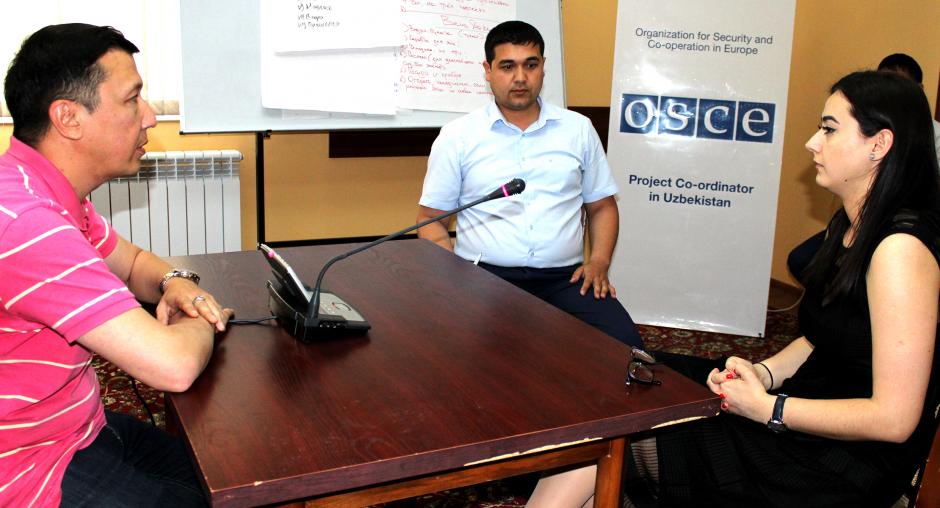Specialized anti-trafficking training course for regional branches of police in Uzbekistan held in Urgench with OSCE support

The first in a series of training courses on anti-trafficking for investigators and operative agents of Uzbekistan police forces was held in Urgench from the 14 to 18 of May 2018.
The course, organized by the OSCE Project Co-ordinator in Uzbekistan, brought together 25 participants from Khorezm, Bukhara and Navoiy regions, and the autonomous Republic of Karakalpakstan.
The training’s objective was to increase knowledge and develop police skills and attitudes to identify victims of human trafficking and labour exploitation and refer them to the appropriate assistance.
“Since trafficking is a common challenge transcending national boundaries, I hope that this course will help to promote effective government and civil society partnership,” said Juergen Becker, Senior OSCE Project Officer. “Uzbekistan can only benefit from the sharing of expertise from international law enforcement practitioners. The United Kingdom experts delivering the course have a vast amount of expertise in investigating human trafficking, international organized crime and terrorism. It is a valuable resource to have the participation of police professionals who have the common goal of adequately protecting and strengthening respect for the human rights of trafficked persons and sharing good practices in combating human trafficking.”
The course participants were familiarized with the PEACE (Preparation and Planning) interview model, designed to stem the proliferation of false confessions that can result from an accusatory style of interviewing. The model promotes a more psychological approach towards conversation management, based on reciprocity between the interviewer and the witness. It is equally applicable to interviewing a suspect and designed to give structure to get to the facts.
Particular attention was given to the new forms and methods of recruitment of potential victims of human trafficking through new technologies. This year`s training took an innovative approach by exploring the link between human trafficking and terrorism.
The course, developed by the Specialist Policing Consultancy was unique in comparing elements of human trafficking to the methods of modern terrorist groups. The training clearly showed that some terrorist groups use the same strategies of recruiting, transporting, coercing and exploiting men, women, boys and girls into committing terrorist acts. It was also explored if investigators could use human trafficking laws to combat or disrupt terrorist activities.
Bernie Gravett, the Director of the Specialist Policing Consultancy, said: “I cannot stress the importance of sharing knowledge and experience between law enforcement officers in the UK and in Uzbekistan. During my time as a police officer investigating international organized crime, the biggest challenge was working together across international borders and legal systems. The growth of human trafficking and the challenges in combatting modern terrorist groups requires us to share experiences, build partnerships and gain an understanding of individual working methods, with the aim of combatting crime and protecting all our citizens.”
Ulugbek Gaynazarov, Head of Department at the Ministry of Internal Affairs, stated that trafficking in human beings, along with crimes such as drug trafficking or terrorism, has become a global phenomenon and requires urgent action. “The organization of such a training course will not only facilitate the exchange of practical experience, but will also allow police investigators to gain new knowledge and skills. He also stressed that the acquired experience will be very valuable for the further development of international co-operation.”
The training is part of a longstanding commitment of the OSCE Project Co-ordinator in Uzbekistan to assist the country in combating trafficking in human beings.
